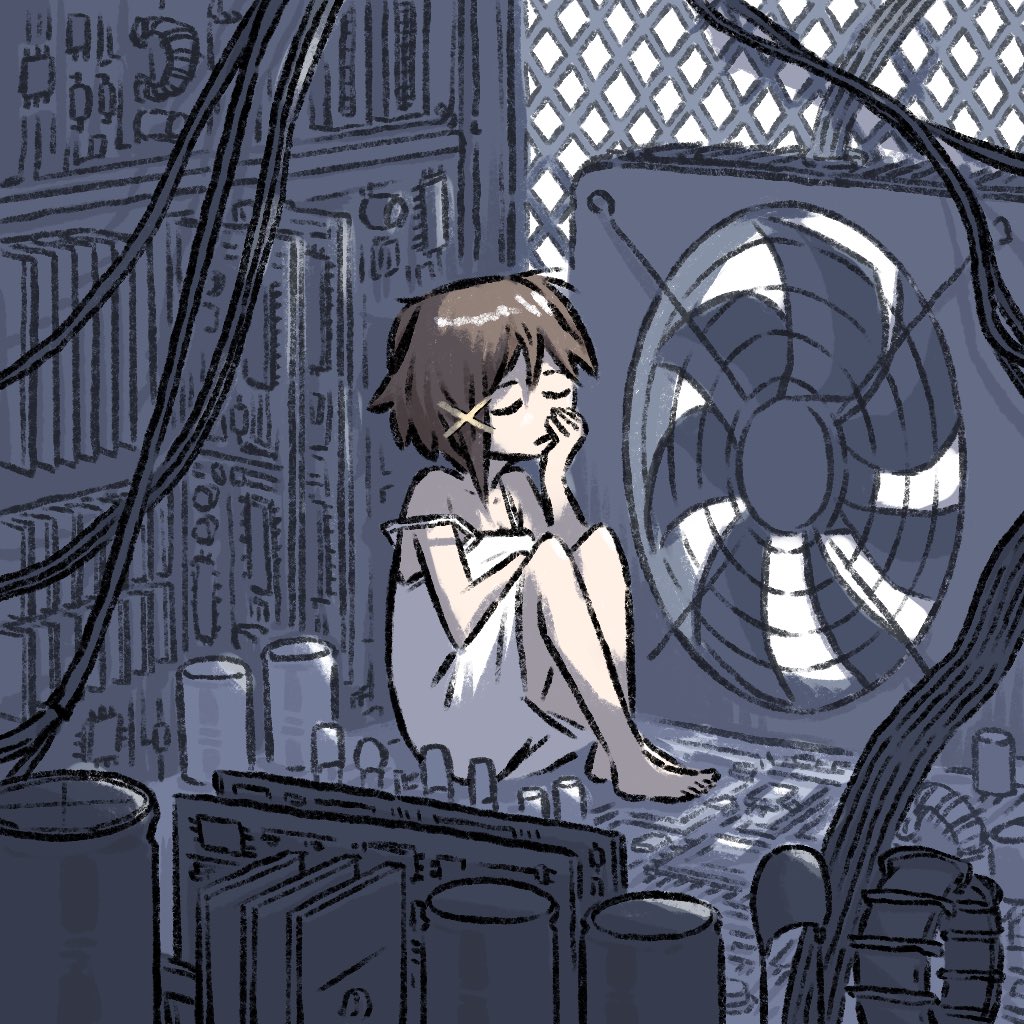I recently made a post discussing my move to Linux on Fedora, and it’s been going great. But today I think I have now become truly part of this community. I ran a command that borked my bootloader and had to do a fresh install. Learned my lesson with modifying the bootloader without first doing thorough investigation lol.
Fortunately I kept my /home on its own partition, so this shouldn’t be too bad to get back up and running as desired.
I ran a command that borked my bootloader and had to do a fresh install.
Just wait until you learn the powers of chroot :)
Few days ago I downgraded glibc(I’m dumdum) because it was recommended in a reddit thread for a problem I was having. I couldn’t even chroot. Fortunately I could update with pacman --root
This is the way
One of us, one of us. I did the same only 2-3 hours into my first ever Linux install.
I feel your pain :P
I’m almost done getting everything back, I think!How long until you start doing backups? 😂
Edit: Took me some years btw
I was trying to set up snapper, so sorta on my way there lol
Borked your bootloader already? You’re a true Linux user lol. You’ll eventually learn to not do that (and back up regularly).
Good choice with Fedora! I love dnf and the choices Fedora makes overall.
Timeshift for backups is a godsend in these situations
OP should just know that TimeShift doesn’t work on Fedora Workstation without some tinkering.
Thats good to know because Fedora seems to be where im heading when i make the switch as well.
borked my bootloader and had to do a fresh install
That’s where you’re wrong :)
You’re right. I spent a few hours trying to fix it before giving up and determined that reinstalling would be quicker lol
Before you can fix a bootloader, you first need to learn how to install and set up a bootloader. I think most people learn that part when they try Arch
Do it with Debian Unstable
Breaking your install within a few days is the rite of passage
Congratulations soldier! You’re one of us now.
I’ve messed up my system so many times over the years that now I think I secretly get excited when it accidentally happens. Maybe I’m a masochist, but I actually enjoy trying to understand what went wrong. A USB stick with a light weight Linux distro and chroot you can usually get back in there and look around at the damage.
I think you may need help… I bid you good luck on your recovery :P
When you get more advanced you can use a distro like System Rescue to fix your bootloader instead of having to reinstall everything
Friendo, I think once you understand exactly what an OS is, you’ll have fewer problems. An OS is just a layer on top of hardware with a lot of scripts and tools that enable that hardware to do things like move files, show graphics, and send audio in a desktop environment. Never issue a root or sudo command unless you understand exactly what it’s doing. Following this one simple rule will save you a lot of trouble, same as any Windows machine.
And a lot of configuration, or so I thought? I’m investing heavily but I’m scared for my investments :-)
Another Linux noob here, after a couple of Linux servers (Tenfingers, Lemmy) switched over (finally) my main PC, or well kids got the gaming machine and I’m on a Mint ThinkPad now :-) and a backup think centre tiny if the Lemmy server bails out.
I have this little windows box to print stuff (I didn’t know I hated printers) and every time I use it I’m so happy I don’t need windows in my personal life anymore…
Cheers and welcome OP!
This comment isn’t making any sense to me, but good on ya?
Except that I’m jumping ship to Linux fully, I’m thinking a lot about hardware failure, not the data but say the mobo, so maybe that’s curious. Seemed you were knowledgeable about those things, or I’m explaining very badly.
Cheers
This is reasonably valid. I think Windows makes it a bit harder to do real damage to your system, so I’m used to that. I also have borked installs in VMs before, but that’s never mattered because spinning up a new one takes no time. Definitely a valuable lesson to do more research before running commands, especially as sudo
Also, once your install is in a state you like, create a backup with CloneZilla.
Nah. This is old school thought. Use an immutable distro if this is your concern, and keep all your files on a NAS, or something else that can replay your files. Local images of your entire filesystem isn’t needed anymore.
Neither an immutable distro nor a NAS is a replacement for backups.
Some people are lucky enough to never learn that backups are vital. Good luck to you in the future!They are two different things.
A Clone of an OS install is not needed anymore, for a jillion reasons.
Personal files do not relate to that.
Perhaps you don’t understand how these are intended to work?
A Clone of an OS install is not needed anymore, for a jillion reasons.
If my SSD decides to suddenly quit, I can get back all my personal files and configs, plus all the software I had installed with all configurations, configured repositories, user rights and group memberships, GUI customizations, system-wide fonts, .desktop-files, root .bashrc, self-compiled software, etc. etc. by popping in a new SSD and
dding my full disk image backup to it with one terminal command.I fail to see how that is not a nice thing to have even today, or how I would get back to the previous state just as fast without it.
Heyha ! Read about dd on makeuseof after reading your post, to see how it works.
Restoring from an image seems exactly what I was looking for as a full backup restore.
However this kind of 1 command backup isn’t going to work on databases (mariadb, mysql…). How should I procede with my home directory where all my containers live and most of them having running databases?
Does it work with logical volumes? Is it possible to copy evrything except /home of the logical volumes?
For special use cases like that, dd isn’t the right tool.
I’m on fedora silverblue and that won’t ever happen again to me
Still possible to break your bootloader.
One of us! One of us!
Although I think having to fix a borked bootloader is a good bit of experience, it’s probably not something you are always going to want to spend time on. I have used boot-repair only once, but it was like magic. Just throwing it out there for your future use and a general recommendation. :)
I love the enthusiasm. Enjoy your journey. Feel free to reach out to me directly if you need help.
Thank you for the offer. I hope I never need to take advantage of it lol
Good luck. 🤣
In my first few weeks of linux I screwed up mounting a hard drive and my pc wouldn’t boot past grub. 4x different times I tried and each time I broke it. Then a year later I revisted mounting the drive and it went smoothly.
Time heals all wounds :P
Trial-and-error is a beautiful thing, isn’t it?
t. Had to reinstall GNU/Linux several times through the course of months while trying new stuff and/or trying to improve the current ones.







